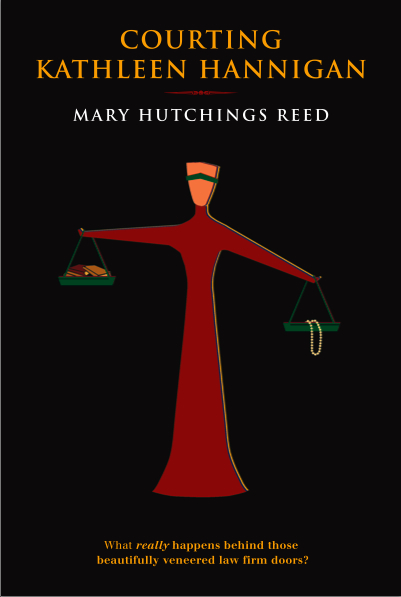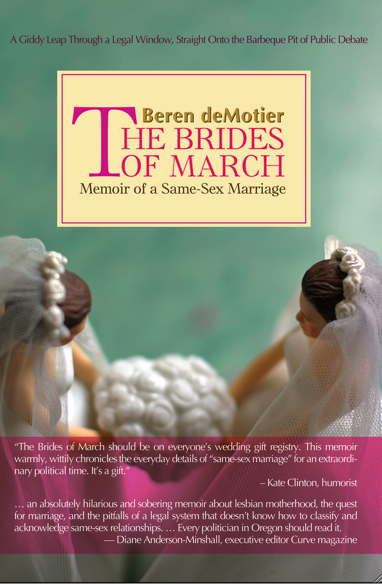No, this lovely, soothing picture of my flower garden (snapped by the equally lovely and talented Marjon Floris) does not mean that my fairy godmother came and waved her wand over my despoiled back yard, alas; the pretty things you see here are from last year, and their descendents still above ground are currently despairing under construction detritus.
In fact, even as I write this, an enthusiastic young man in a backhoe appears to be enjoying himself very much, rolling back and forth across land that was once green. And I wouldn’t be entirely surprised if that crash I just heard involved the demise of one of my windows.
But that’s not my focus at the moment. Since we’ve been talking for a week now about coping with the trauma that is receiving and applying verbal feedback, I thought it might be a good moment to remind us all that THINGS GROW BACK.
So far in this series, we have been concerned primarily with how to deal constructively with the kind of feedback writers often receive face-to-face: in critique groups, classes, pitch meetings, public readings to one’s, well, public, workshops, telephone calls with one’s agent, lunches with one’s editor, and occasionally, as we saw yesterday, situations where one is inadvertently saddled with a feedback-giver who doesn’t quite get the story.
Daunting situations, all. You were brave and attentive while we looked them straight in the face; I’m proud of you.
And in the fine tradition of tough love, I’m going to reward you for that courage by testing it a bit more. Today, we begin taking on WRITTEN feedback.
Already, I can feel some of you squirming behind your computer desks. “But Anne,” I hear a vocal minority protest, “that’s comparatively easy critique to take well, isn’t it? I mean, in person, you have to keep your temper, be polite, refrain from bludgeoning the critic with the nearest blunt object, that sort of thing. But with written feedback, I can indulge in primal screaming in the privacy of my atelier. So why worry about the intensity of my response?”
I can answer that in two keystrokes, Mr. Atelier-Owning Smarty-Pants: the DELETE key and the SEND button.
C’mon, admit it — you know precisely what I’m talking about here. No? Okay, let’s introduce a few new exemplars to illustrate.
Written feedback meltdown #1: when Lionel signed with Murgatroyd Literary Associates two months ago, he didn’t know much about how submissions to publishing houses worked. Like many new to being agented, Lionel simply assumed that his agent would start pitching and sending out his novel, LOVE KICKED ME IN THE DIPLOMATIC POUCH, the nanosecond the hard copies arrived in New York.
Give or take a coffee break or two.
Being a conscientious agent who truly believes in Lionel’s book, however, Murgatroyd expresses an interest in seeing the book revised to maximize its marketability before he begins investing in buying coffee and lunch for editors. He promises the incredulous Lionel some feedback, but then the holidays happened, followed by the annual New Year’s Resolution Query Avalanche…in short, he’s only just gotten around to it now, in March. Sorry.
Naturally, Lionel has been chomping at the bit the whole time: he can’t WAIT to quit his day job as Secretary of State to become a full-time writer. But when he begins to read Murgatroyd’s two-page (single-spaced) explanation of what he wants changed, his brain feels like it’s boiling by halfway through the second paragraph.
What does he mean, the title isn’t suggestive enough, or that the instantaneous translators at the UN couldn’t possibly have their mouths at leisure enough for the peanut butter sandwich bonanza in Chapter 12? And how could the plot possibly work without the brigade of tap-dancing baton-twirlers from Nairobi?
By the time he reaches Murgatroyd’s tentative suggestion that perhaps June would be the best time to start circulating manuscripts, Lionel has sprouted two ulcers, the makings of a whopper of a migraine, and a bunion on the third toe of his right foot. Clearly, Murgatroyd wants a completely different novel than the one he’d had in mind.
Shaking, Lionel inches his mouse toward the DELETE key — not to trash the manuscript, although obviously that’s a lost cause, but to eliminate the most remote possibility that he will ever have to gaze upon this emotionally-abusive document again.
Weeks pass, but Lionel is afraid to open Murgatroyd’s subsequent e-mails, for fear of being lambasted. Eventually, they stop coming.
Doesn’t seem plausible that an aspiring writer would bow out of a relationship with a good agent so quickly? Actually, it happens all the time: agents often speak with regret about the talented writer with the great book concept who went away, feedback in hand — only to disappear forever into the Revision Vortex.
Don’t worry; we’re going to make sure that it doesn’t suck you in, I promise.
Okay, that’s one button down. Here’s an example of the other.
Written feedback meltdown #2: Nancy’s first novel, THINGS I COULD NOT TELL MY MOTHER I DID IF THIS WERE NONFICTION, was snapped up fairly quickly by a major publishing house — which is to say, in under a year’s worth of submissions by her agent, Olivia, a period punctuated by our heroine’s e-mailing twice a week and calling three times a month to find out what was going on with her book.
Relieved at the prospect of no longer being on the receiving end of so much angst, Olivia passes along editor Pauline’s e-mail to Nancy, so they may communicate directly, and retires to Bermuda to raise mountain lions. (They’re easier to herd than authors, she says; big cats don’t need continual reassurance that they’re talented.)
At first, Nancy and Pauline’s e-mail exchanges are very cordial: they discuss deadlines, minor changes, information for the marketing department. Then, one day, Nancy sits down at her computer to find what’s known in the biz as an editorial memo, a document briefly summarizing the changes Pauline would like to see in the manuscript before formally accepting it for publication — and, not entirely coincidentally, before paying the second installment of the three-part advance.
Nancy can’t believe her eyes — these change requests are outrageous! What does plausibility even MEAN, in a fictional context? Plenty of girls in her generation were Yo-Yo Ma groupies, and while cellos certainly aren’t common in marching bands, it’s just closed-minded to declare it impossible. And who cares if the subplot about the bassoonists’ conspiracy to replace the conductor with a cardboard cut-out of Jerry Garcia adds four chapters to the book? It really happened that way.
I mean, it happened that way in the book.
But Nancy is a word-oriented person and, she believes, a reasonable one, so she sits down immediately and writes a 27-page response to Pauline, explaining precisely how and why each and every one of these suggested changes is, if not actually idiotic, at least a really, really bad idea.
The next day, she receives a furious phone call from a wildcat farm in Bermuda. “What on earth did you say to Pauline?” Olivia demands over the ambient mewing. “She’s talking about dropping the book!”
Seem extreme? It’s not unheard-of, barring the mountain lion part. But let’s tone the same phenomenon down a little, to show the more common victim of the itch to push the SEND button.
Written feedback meltdown #3: querulous Quentin has been querying his quaint historical romance, THE QUONDOM QUISLING QUAILS, for quite some time now. It might be quixotic, but it has long been his quotidian habit to question other quill-pushers in his critique group about the qualifications of their representatives.
(Okay, I can’t keep it up anymore.)
Having experienced little success by sending Dear Agent queries to everyone he could find on the Internet who claimed to sell books, he hies himself hence to a writers’ conference, because he’s heard that it’s easier to pick up an agent that way.
The first day of the weekend-long conference is disappointing, though: two agents to whom he has been randomly assigned for pitch meetings turn out not to represent his kind of book.
Not that it stops him from continuing to urge them to make an exception in his case.
On Sunday, he approaches Rex, an agent who does take on historical romance. He seems open to Quentin’s book concept; he asks to see the first 50 pages. Delighted, Quentin rushes home and e-mails the chapters that very night, then settles down to the time-honored writerly ritual of counting the seconds until the agent falls in love with his work.
Out of his mind with anticipation by the following Friday, he shoots off an e-mail to Rex, asking if he liked the pages and offering to send more. In passing, Quentin explains that he wants this book to succeed more than anything else he has ever desired in his life.
When Rex has still not responded by the Tuesday after that, Quentin sends another e-mail, apologizing for being so intrusive, but explaining that he (unlike every other writer from whom the agent might conceivably have requested materials, one assumes) is committed to making this book the best it can possibly be.
Fortunately for Quentin, Rex hasn’t bothered to read these subsequent missives, which have automatically been added to the queue (ah, there’s another one) of e-mails for Rex’s assistant Samantha to plow through when she is finished reading the week’s paper submissions.
Samantha, as it happens, shares a 3-room railroad apartment in Brooklyn with Millicent and four other agency screeners. (Have I mentioned that they’re not paid much?) When she gets to Quentin’s submission, she gives it a fair reading. For a paragraph, at any rate.
Then she rejects it with the standard agency boilerplate: Thank you for submitting your novel. Unfortunately, I didn’t fall in love with this story, and the fiction market it too tight at the moment to take on projects in which we do not have complete faith. Best of luck in placing this elsewhere. Sincerely, Samantha J. Powermonger.
Quentin is stunned by this response. Who the heck is Samantha J. Powermonger? Did she steal his manuscript from Rex? Hadn’t he and Rex made a real connection at the conference?
Clearly, there’s been some terrible misunderstanding. To rectify it, he sends off an extensive e-mail to both that Samantha person and Rex, explaining that there must have been a mix-up at the agency.
While he’s at it, he explains precisely why his protagonist is deeply loveable.
Rex does not respond, but Samantha (not having burned her lip on a latte that day) does. She explains patiently that she is Rex’s assistant, and it’s her job to screen submissions. Yes, that really does mean that his submission had been rejected.
Quentin responds five minutes later with a four-page missive, informing her (since she was evidently unaware of it) that he and Rex had an understanding, so she had no right to keep the manuscript from him. Obviously, she knows less than nothing about GOOD literature, so here is another copy of the requested pages. Perhaps this time she could manage to be a good secretary and place them in the right IN box?
When she doesn’t reply within a few hours, he composes a snail mail letter to Rex, explaining what has happened and marking it PRIVATE!!!! Mysteriously, that doesn’t elicit a request for the rest of the book, either.
Clearly, it’s all Samantha’s fault. He’d better send her another e-mail.
(Curtain.)
Now, I would sincerely hope that how each of these exemplars handled feedback on their work — explicit critique in Lionel and Nancy’s cases, implicit in Quentin’s — made you laugh because you would never DREAM of handling professional criticism this way. But the fact is, wildcat farms aside, writers do launch these kinds of responses in the general direction of agents and editors every day.
And that, my friends, is bad for all writers, leading many folks in the biz to roll their eyes and dismiss the whole lot of us as hypersensitive, volatile, and ignorant about how the industry actually works. They tend to attribute this to a desire to cling desperately to our original drafts, as if the arrangement of words on the page were somehow mystically significant, or to a simple refusal to understand that publishing is a business, not an arts-promotion charity.
I don’t think that’s usually what’s going on.
I attribute this kind of overreaction to three causes: (a) lack of skill (and experience) in accepting feedback, (b) conflation of effort expended with quality of writing, and (c) a myopic tendency not to try to see a manuscript (or query) from any point of view other than that of author.
Why bring this up now, in mid-series on feedback acceptance?
Next time, I’m going to start going through a set of strategies any writer can use to present his response to written critique more professionally, in a way that will avoid engendering the astonished and annoyed responses we’ve seen here. Despite what many writers would like to believe, well-written books are seldom produced in a vacuum; ideally, working with an agent or editor should be a collaboration, not merely a division of the labor required to bring a book to market.
But in order to move beyond simply not offending people who wield power over your ability to sell your writing and begin to become truly talented at incorporating feedback, let’s start thinking about (b) and (c) as well.
Why? Because ultimately, a book is not for the author alone — at least, not if the author plans to get it published.
It is also for the audience. And no matter how talented a writer may be, if she can’t place herself in the shoes of her target audience — be it agent, editor, or the reader she believes will eventually be buying her book on Amazon — she’s not going to be a very good reviser, whether based upon outside feedback or her own self-editing instincts. She needs to learn to view her work as other readers see it.
Give it some thought — and keep up the good work!





















